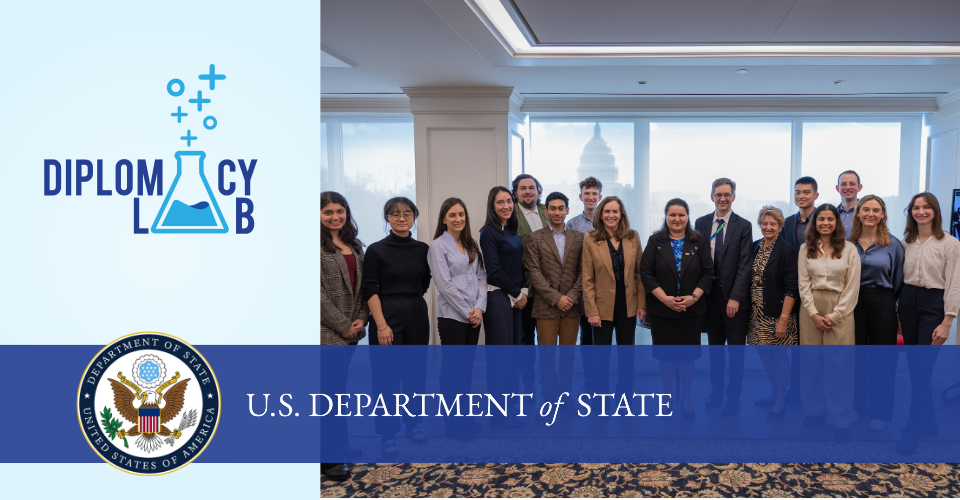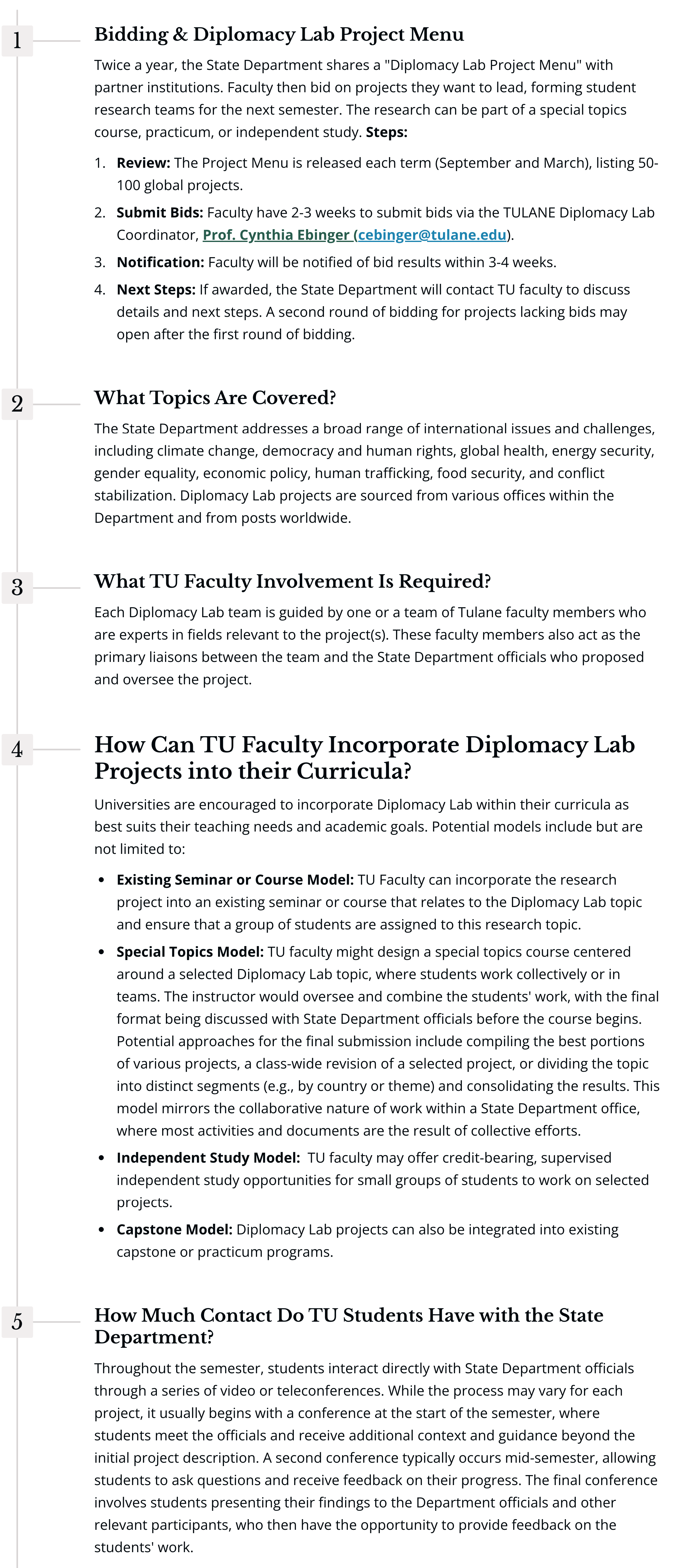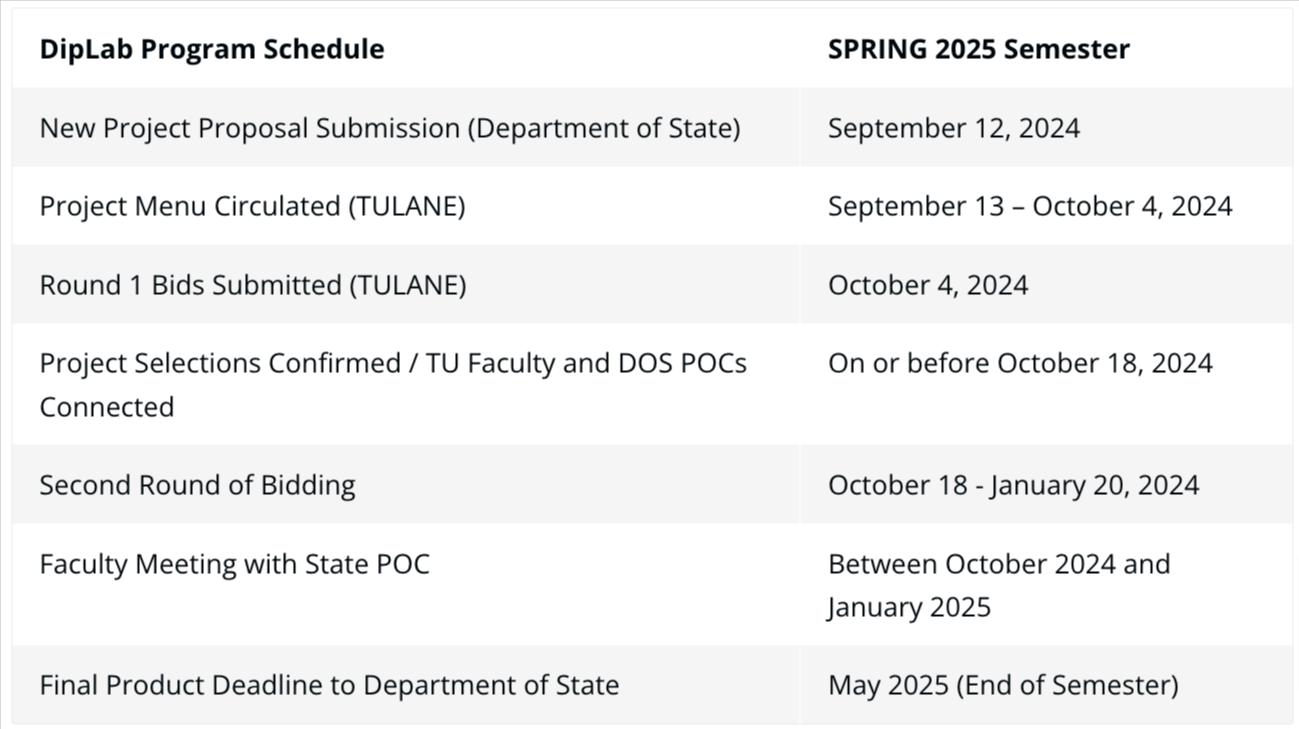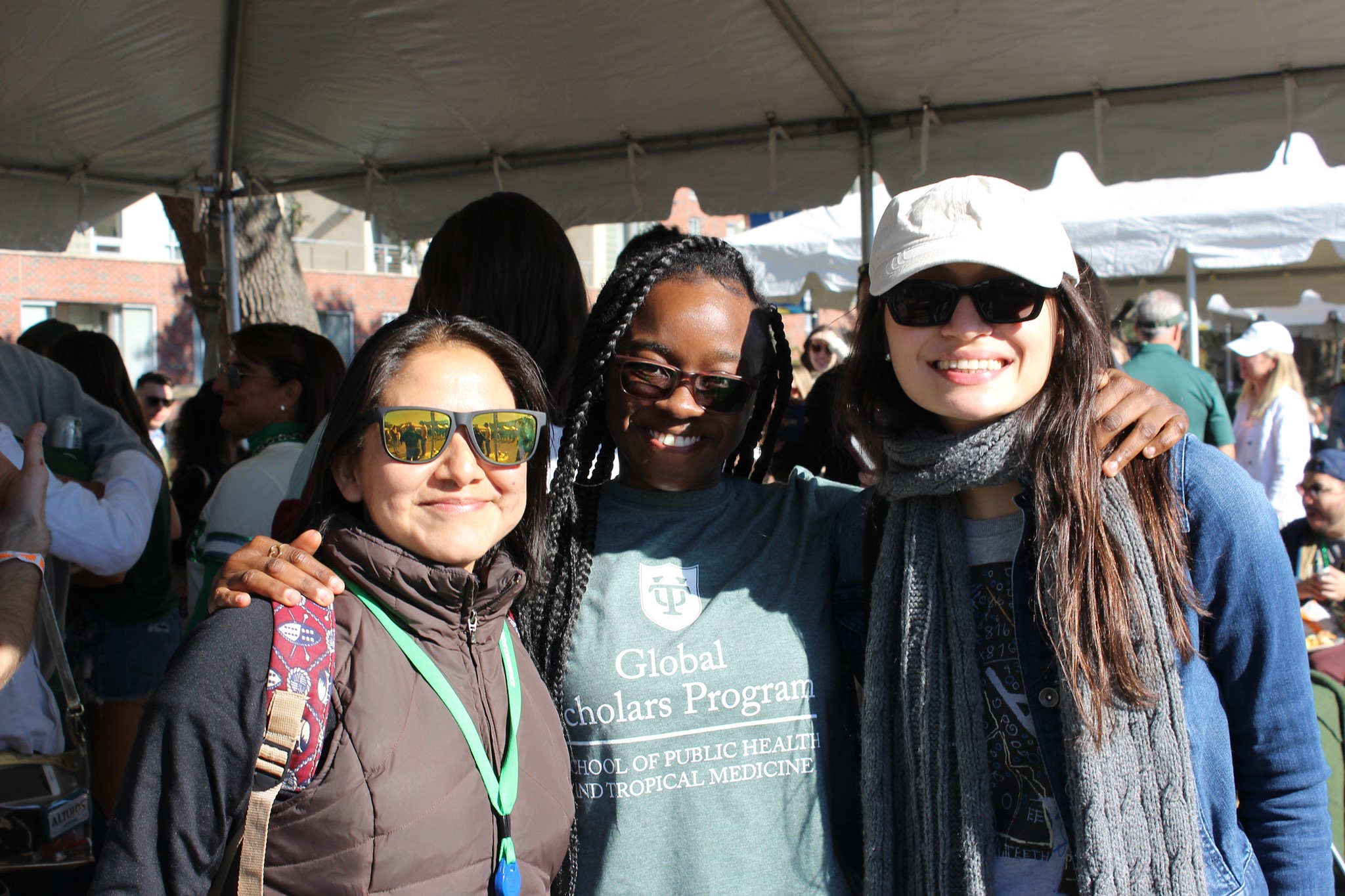Diplomacy Lab: Bridging Academia and Foreign Policy
Tulane is excited to announce that it is now a proud partner of Diplomacy Lab, a public-private partnership between the U.S. Department of State and a network of U.S. academic institutions. Diplomacy Lab enables the State Department to "course-source" research on foreign policy issues by leveraging the talents of students and faculty at universities across the country.
Students at Tulane participating in Diplomacy Lab will have the opportunity to explore real-world challenges identified by the State Department, working under the guidance of expert faculty. This initiative not only allows students to make meaningful contributions to the policymaking process but also helps the State Department tap into an underutilized reservoir of intellectual capital.

DIPLOMACY LAB BIDING & PROJECT MENU (SPRING 2025)
Twice a year, the State Department shares a "Diplomacy Lab Project Menu" with partner institutions. Faculty then bid on projects they want to lead, forming student research teams for the next semester. The research can be part of a special topics course, seminar, practicum, or independent study. If you are a Tulane faculty member interested in submitting a bid, see below for the guidelines and/or reach out directly to Tulane Global (tulaneglobal@tulane.edu).
The deadline for faculty to apply to participate for Spring 2025 is October 4th.
HOW DOES IT WORK?

The deadline for faculty to apply to participate for Spring 2025 is October 4, 2024.
SPRING 2025 SCHEDULE


" This is my first time working with the Diplomacy Lab, which is eye opening to apply my knowledge while thinking from the perspective of Jamaican people and to work with various organizations. It's truly amazing to have students from a wide range of backgrounds working together to help address coastal resilience problems in Montego Bay. "
— Prof. Yi Wang, Assistan Professor, School of Science and Engineering
" Tulane is pleased to join the Diplomacy Lab initiative and provide opportunities for our faculty and students to engage in research in the classroom that may have real-life impacts in global policymaking. "
— Laila Hlass, Associate Provost for International Affairs
